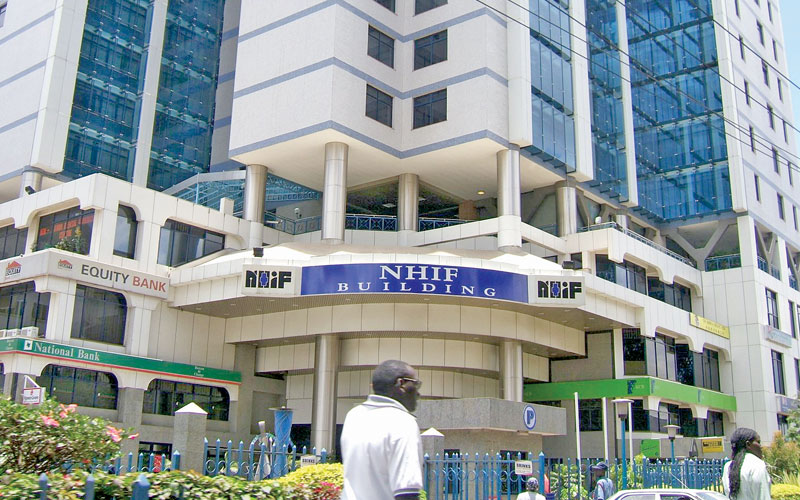NHIF Bill will render many jobless, say insurers lobby

Steve Umidha @UmidhaSteve
Association of Kenya Insurers (AKI) has called for a relook into the contentious National Hospital Insurance Fund (Amendment) Bill 2021, saying passage in the current form could expose more working Kenyans to unemployment.
AKI further says that the bill – awaiting Parliament’s consent, will also be a blow to the insurance industry premiums which contributes slightly over 2 percent to the country’s gross domestic product (GDP).
“The effect will also be felt by the employees in the insurance industry further aggravating the already bad unemployment situation in the country,” the Association’s chief executive Tom Gichuhi said yesterday.
The association is now calling for a complete overhaul of the bill even as President Uhuru Kenyatta in his speech during the National Prayer Breakfast last week rallied the National Assembly to fast-track its passage.
“There are proposals before you that will ensure that all Kenyans have access to health insurance.
They will allow us to ensure people are properly taken care of, not just during the pandemic but always,” said President Kenyatta last week.
President Kenyatta said that the bill seeks to boost the government’s quest in achieving the Universal Health Care (UHC), one of his Big Four Agendas.
The controversial bill which also faces opposition from the Central Organisation of Trade Unions (COTU) is still before the National Assembly and is yet to be debated on, and proposes to make it mandatory for every Kenyan above 18 years to pay an annual contribution of Sh6,000 to the National Hospital Insurance Fund (NHIF).
Its impact, experts feel will overburden most working Kenyans currently reeling from the effects of the Coronavirus pandemic – with a growing number of Kenyan workforce presently operating on reduced salaries while majority are out of work.
The fund’s requirement for employers to match employee contribution, experts have also said will impact on the cost of labour.
Indeed, employers who have supplemented their employees’ NHIF insurance cover with private medical insurance may cease to do so or considerably reduce the benefits available to employees in a bid to mitigate the rise in labor related costs.
High labour costs
“High labour costs also make Kenya unattractive to foreign investors, especially in labour intensive industries such as agriculture and hospitality services.
Investors may opt to move to other countries, a big loss for the country,” argued Gichuhi.
He further said that the bill should provide room for and encouragement for voluntary action by individuals to provide more than the minimum required cover.
Further, AKI boss argued that the cost of providing private medical insurance would go up and in turn reduce uptake.
As a result, Gichuhi added there will be over-reliance on NHIF cover, even if it is to be utilised upon exhaustion of private insurance. Previous attempts by insurance industry experts to restructure the country’s largest medical scheme have hit the wall.
Experts feel that the bill does not offer protection to taxpayers in the event that the fund runs into losses which would ordinarily mean that some of the losses would be transferred to the reinsurer.
“NHIF does not have any reinsurance arrangement and no reinsurer would be willing to come on board with the current financial situation at NHIF. This means that the fund is highly exposed,” said Gichuhi.












